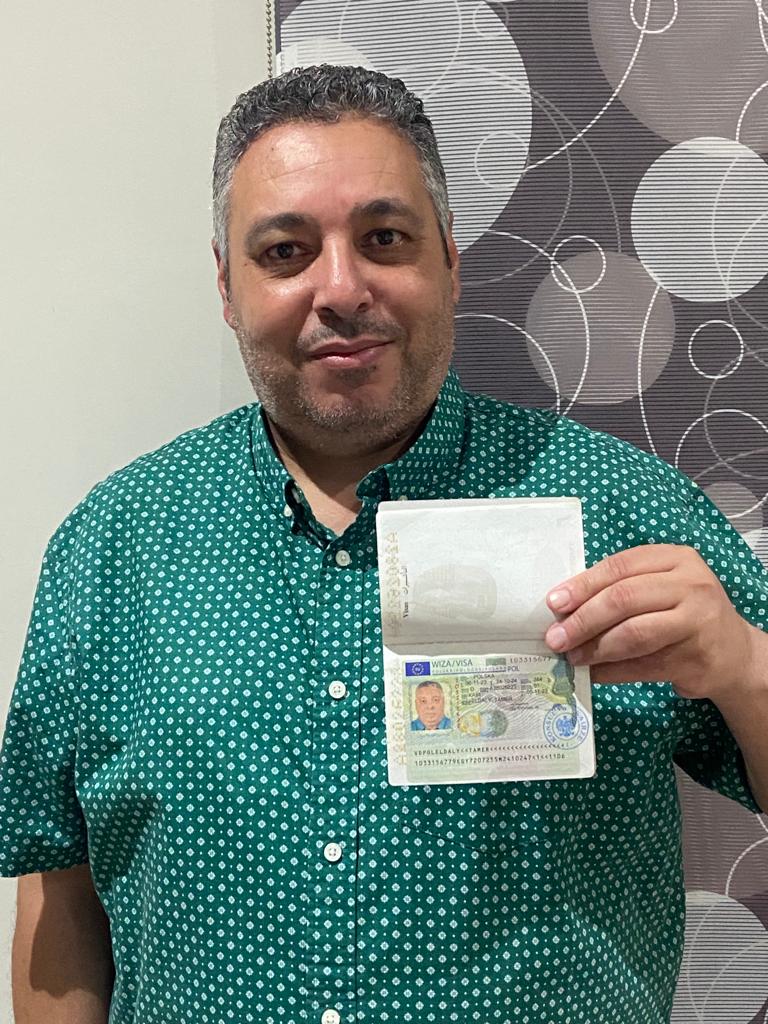

How to apply work visa for Romania in 2023?
Work permits
Work permits are compulsory for non-EU/EEA/Swiss foreign individuals working in Romania.The work permit is granted at the employer’s request, by the Romanian immigration authorities.
This document is needed to obtain a long-stay visa or residence permit for employment or assignment purposes. Foreigners cannot work in Romania before they obtain a work permit.
A work permit does not grant the foreign individual general permission to work in Romania- only for a single company (which requests it) and for a single specific position. A foreigner who moves from one company to another must obtain a new work permit even if the existing one has validity remaining.
Simplified conditions have recently been introduced for foreigners who change jobs with the same employer or who change employer, provided their single permit or EU Blue card is valid. Foreigners in these categories are no longer required to provide proof of selection or proof of payment of obligations to the state budget provided that they can submit a clean statement of criminal record issued by the Romanian authorities.
Romania’s Minimum Wage
From January 2022 the minimum for full-time employees is RON 2,250 per month (€515, US$566), equating to RON 30,600 (€6,184, US$6,795) a year. Employees in the construction sector stayed at a monthly minimum of RON 3,000 (€606, US$666), the same as before January 2022.
Probation Periods in Romania
Permitted only once for each employment. Generally, for 90 days, they can be shorter if applied to fixed-term contracts or temporary employees. Probation periods for executives and managers can be for 120 days.
Working Hours in Romania
The working week is 40 hours over five eight-hour days and cannot normally exceed 48 including overtime unless there is an averaging agreement for no more than 48 over a four-month period. Workers must have 12 hours rest between successive working days and two successive rest days per week. Daily breaks are not generally paid, with their length determined by contract or collective agreement. In March 2022, proposals were announced to allow full-time employees to work four 10-hour days.
Overtime in Romania
Employers need employees’ written agreement to work overtime. Compensation is generally as paid days off within 60 days of working. Where impractical, employees are compensated financially at not less than 75% above their normal hourly pay rate. Overtime cannot exceed 48 hours per week and after working a 12-hour shift, employees must have 24 hours off. Under-18s, part-timers and pregnant employees cannot work overtime.
Top paying positions in Romania
It could not be easy to get work in Romania, especially if you don't understand the language.
Despite the fact that things are changing in this country, many industries have lagged behind due to the bureaucracy and obsolete employment structures.
It's been a while since I read an article about Noble Prize winners who couldn't teach in universities in Romania because they couldn't pass the ridiculous requirements for instructors (not that any Noble Prize winners intended to start teaching in Romania, of course).
However, there are some areas where it’s easier to find jobs in the country and fortunately these are also the best paying jobs in Romania. Think about large corporations and IT and you have a clear picture!
Also, there is an increasing demand for workers in the construction field, with decent salaries to follow (although still not the highest in the country).
With these in mind, let’s check out some of the best paid jobs in Romania. The salaries below are average amounts from 2020, so they might be a bit higher in 2022.
1. IT: 17,000 Lei
2. Oil extraction: 9,000 lei
3. Engineering: 7,300 Lei
4. Banking: 5,859 Lei
5. Heavy industry: 5,000 Lei
Other jobs that pay well include:
Truck Driver: 4,500 RON
Marketing: 4,500 RON
BPO: 4,150 RON
Engineering: 4,000 RON
Construction work: 5,000 RON
Have in mind that these are just averages and estimates and actual salaries that a company is willing to pay can be very different from the values above.
Types of Work Visas in Romania
Romania is a member state of the European Union (EU), so the laws regarding work visas and permits are similar to those of other countries in the EU. Citizens of other EU member states do not need a permit to work in Romania, nor do citizens of Switzerland and other countries in the European Economic Area (EEA). These countries include Norway, Iceland, and Liechtenstein.
Any prospective employee who is not from one of these countries will need a work permit. There are several kinds of permits for foreign citizens in Romania, including permits for:
- Seasonal workers
- Trainees
- Athletes
- Permanent employees
- Cross-border workers
- Nominal work
Requirements to Obtain Romania Work Visas
In Romania, foreign citizens cannot apply for a work permit on their own behalf. The employer must apply for them.
A permit will be issued only if there are no Romanian citizens or citizens in other EU or EEA member states who are eligible to fill the position. This is one condition of eligibility for a permit. Other conditions include that the prospective employee must:
- Meet all of the employer’s requirements for the position under legal provisions
- Have no criminal record that would prevent them from working in Romania
- Provide a medical certificate that states their capability to carry out the tasks required for the job
- Fall within the yearly quota for foreign citizens who may be granted a work permit
The employee will also need to apply for a long-term visa. Along with the application, the employee should be prepared to provide several documents, including:
- The work permit obtained by the employer
- Proof of accommodation in Romania
- A valid passport
- Two recent identifying photos
- Proof of medical insurance for the duration of the visit
- Police clearance or a background check from the employee’s country of residence
- Evidence of sufficient financial means to support the visit
- A flight ticket or proof of other accommodations for travel
Application Process
Foreign citizens will need a work permit as well as a long-term visa to live and work in Romania legally. Here are the necessary steps to obtain these documents:
- The employer must apply for the work permit on behalf of the prospective employee, submitting all relevant documents to the Inspectorate General for Immigration (IGI) and paying the applicable fees.
- The IGI will answer the request within 30 days, either providing a decision or requesting more information for verification. If additional verification is needed, the process may be extended for up to 15 days.
- Once the application is approved by the IGI, a work permit will be issued to the prospective employee.
- The employee must then obtain a long-term visa by applying through the diplomatic missions and consular offices of Romania. The employee has a window of 60 days to apply after obtaining their work permit.
Other Important Considerations
If an employee needs to extend the residence granted by their long-term visa, they can request to do so through the IGI. They’ll need to file the request at least 30 days before their visa is set to expire. Their work permit may be renewed at the same time.
In Romania, most work permits can be extended for up to a year. Highly skilled employees may be qualified for an extension of two years.
It’s likely that some of your employees will be traveling with family members. Each family member will need their own long-term visa as well as their own work permit if they wish to seek employment in Romania.
Need guidance to work in Romania? Talk to Europ , the Best overseas career consultant.If you found this blog engaging, you may also like …

















